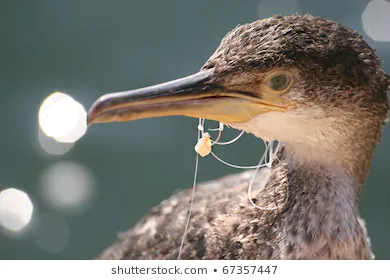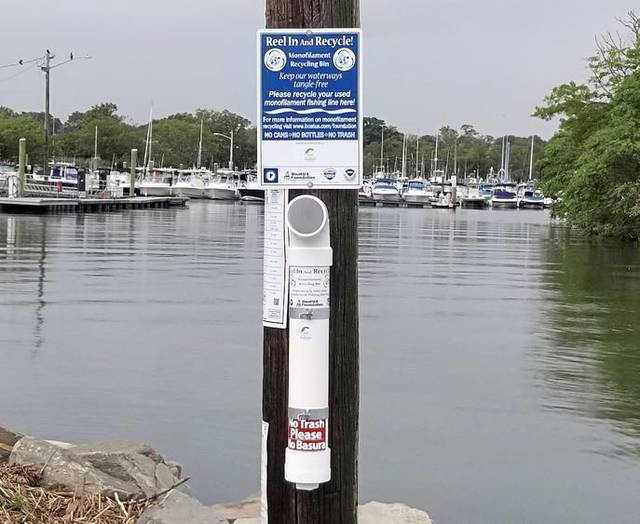Ron's Catch: How to Properly Dispose of Your Fishing Line

Fishing line is a key element to fishing, but one question to ask is, “What do you do with old or used fishing line?”

Properly disposing of fishing line will not only help the environment, but it will save wildlife. I have seen countless birds and other wildlife be severely injured with line wrapped around their wings, beaks, legs; I have even seen the line sever limbs and even cause death. Osprey and other big nesting birds are notorious for picking up bundles of line for their nest and unfortunately, this is responsible for 10% of all deaths to chicks annually.

As outdoorsmen, we can all take a few extra steps to protect these precious resources that we are all incredibly fortunate to have around us.
Although we may not always intentionally think about the future impact fishing line may have, it is important we take the few seconds to pick up our line and dispose of it correctly. While it can be much easier to cut your tag end while fishing and just throw it on the ground or in the water, my hope is that we each start to do our part.
Fishing line such as monofilament or braided lines can take up to 600 years to decompose. That gives wildlife, like birds, turtles, and fish, too many chances to get tangled up in broken fishing line.
Whenever I am fishing, I always try to pick up every piece of line I cut and put it in a Ziplock bag, so the smaller pieces do not blow into the water or fall on the ground. If I happen to run across fishing line or catch a line while fishing, which happens pretty frequently, I always try to gather as much of it as I can to throw out a fishing line so that wildlife or other anglers do get caught in it.
In addition, I recommend changing spools of line at home and cutting your line bundles before tossing it into your Ziplock to ensure no future hazard, and for proper future disposal.

Another question to ask is “Where to dispose of the line?”
Today, there are many places to dispose of your fishing line, so there are no excuses for just tossing it outside or in the trash. Just about any local sporting goods retailer has a fishing line recycling bin for drop-off or you can ask an associate behind the fishing reel counter to take it.
Another convenient drop-off is right at the lake. Many boat ramps or launch sites now have a fishing line recycling drop-off, so you can dispose of it right there before you head home. Most drop-offs look similar to the one pictured to the right.
You can also mail your leftover fishing line to Berkley Recycling Center in Iowa and can do this once every year or so depending on how much line you have.
By taking these few extra steps, you can feel good that you’re doing your part for our environment.